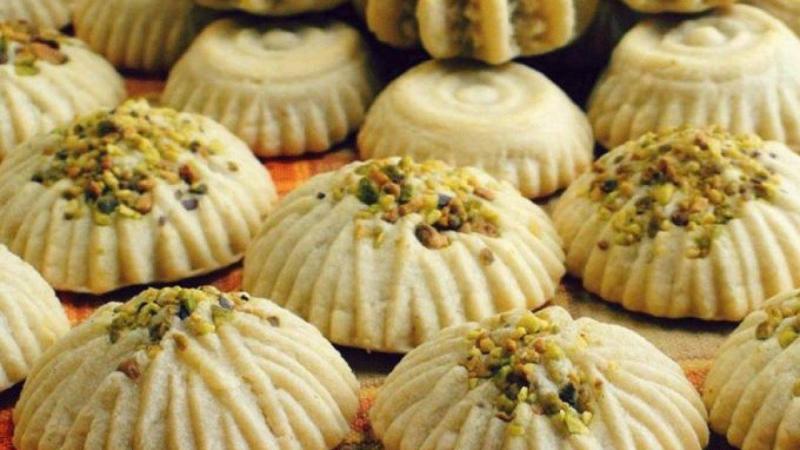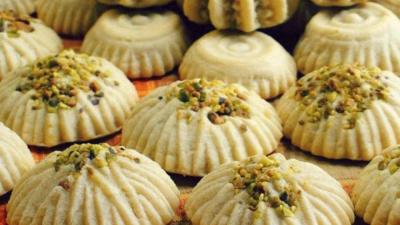For the second consecutive year since the onset of the economic crisis and collapse in 2019, families in Tripoli and Akkar are saying farewell to a fundamental Eid tradition: maamoul, especially the homemade kind, which has a unique taste unmatched by any other. In sweets shops in the north, the price of a kilogram of small maamoul has exceeded 300,000 Lira, and in some other shops, it has surpassed 400,000 Lira; the larger the size of the maamoul disk, the higher the price.
The situation is no better for those wanting to make maamoul at home. A simple calculation shows that the cost of making a maamoul dish (with fillings like pistachio, walnut, or date) for a family of 4 to 10 people (in Akkar and Tripoli) and considering a "mother-in-law" wanting to bake for her household while accounting for her daughters-in-law, will exceed 3 million Lira for about 4 to 5 kilograms of maamoul. If guests over the holiday are factored in, the cost would be much higher. It is enough to note that the price of a kilogram of Aleppo pistachio exceeds 500,000 Lira, not to mention the prices of butter, semolina, flour, sugar, and the other ingredients.
Huda from Akkar says: "Last Eid al-Adha, when the dollar was around 20,000 Lira, I prepared 6 kilograms of maamoul with pistachio and walnut for my home and Eid visitors, which cost over 1.5 million Lira. This Eid, we did not make maamoul to save money, but my husband and I calculated the cost because Eid isn't complete without it, and it turned out to exceed 3 million Lira. We immediately abandoned the idea, even though the kids keep asking for maamoul since they miss it, and Eid is not the same without it. I think we will buy one kilogram ready-made from sweet shops just for the kids, nothing more."
Moreover, many families this year could not buy new Eid clothes for their children. Some settled for clothes from Eid al-Fitr, while others did not buy any new clothes for either Eid, due to the soaring prices linked to the dollar and the loss of funds in wallets. In short, the atmosphere of Eid these days is nothing like previous celebrations; even the children who usually rejoice during Eid and look forward to its rituals have been deprived of all that without any fault of their own. The suffocating economic crisis has robbed the Lebanese of many traditions, habits, and many dishes that once adorned their tables during celebrations. This Eid al-Adha, the tables of northern families will lack meat as it becomes difficult to afford the prices of sacrifices, and people's festivals are without maamoul due to the high prices of its ingredients. Thus, life for the Lebanese has become like a dish without salt... they try to pass the time with anything and the least of things while living in hope that a future day will be brighter and better for them. Will that day take a long time to arrive?




